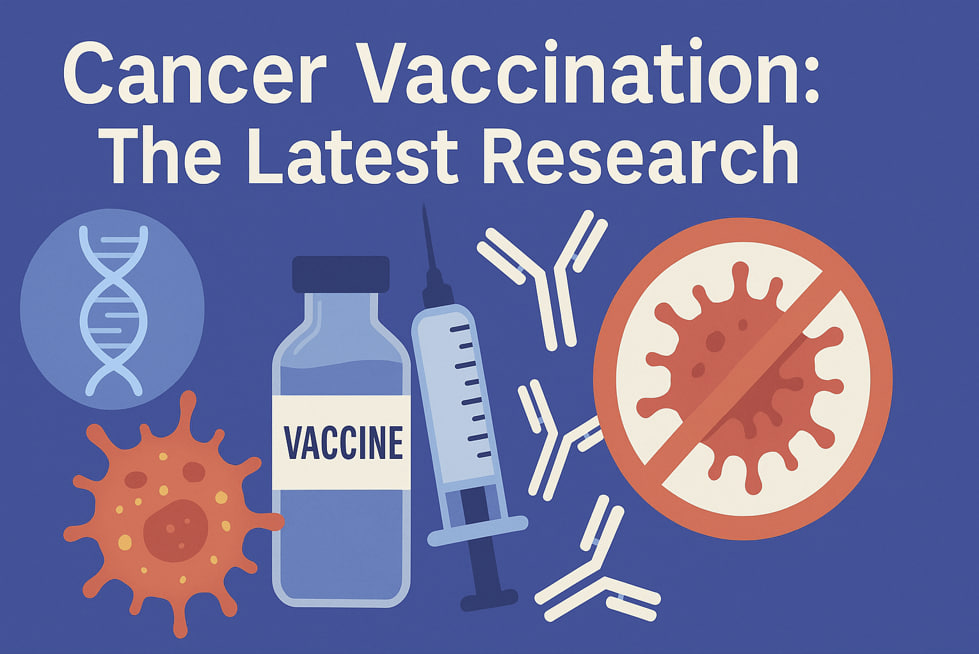In recent years, scientists have made significant strides in developing cancer vaccines, offering new hope in the fight against one of the world’s deadliest diseases. Unlike traditional vaccines that prevent infectious diseases, cancer vaccines aim to prevent or treat cancer by training the immune system to recognize and attack tumor cells.
How Cancer Vaccines Work
A therapeutic cancer vaccine works by stimulating the body’s immune system to target specific antigens found on the surface of cancer cells. These antigens act like red flags, allowing the immune system to distinguish harmful cells from normal ones. In contrast, preventive vaccines are designed to stop cancer from developing in the first place—such as the well-known HPV vaccine, which prevents cervical cancer.
Recent Breakthroughs
1. mRNA Technology Beyond COVID-19
Inspired by the success of mRNA-based COVID-19 vaccines, researchers have begun using mRNA platforms to create personalized cancer vaccines. These vaccines are tailored to a patient’s unique tumor profile and can trigger a precise immune response. Early trials in melanoma and pancreatic cancer have shown encouraging results.
2. Universal Cancer Vaccines
Some studies are exploring broad-spectrum vaccines that could target shared mutations across different cancer types. One notable project by BioNTech and Genentech targets neoantigens, mutations found only in cancer cells, minimizing the risk of harming healthy tissue.
3. Combination Therapies
Cancer vaccines are increasingly being tested in combination with immune checkpoint inhibitors, such as PD-1 blockers, to enhance their effectiveness. This approach has shown promise in non-small cell lung cancer and triple-negative breast cancer.
Challenges Ahead
Despite exciting progress, several challenges remain:
- Not all tumors express identifiable antigens.
- The immune system can sometimes fail to mount a strong enough response.
- Tumors may evolve and escape immune detection.
Overcoming these barriers will require continued research, funding, and international collaboration.
Future Outlook
Experts believe that within the next decade, cancer vaccines could become part of standard treatment protocols, especially for aggressive and hard-to-treat cancers. Ongoing clinical trials and the refinement of mRNA and other novel technologies will be crucial in turning this vision into reality.
Glossary
- Cancer vaccine – A vaccine designed to prevent or treat cancer by stimulating the immune system to target cancer cells.
- Tumor cells – Abnormal cells that grow uncontrollably and form a mass or lump.
- Therapeutic cancer vaccine – A vaccine used to treat an existing cancer.
- Antigens – Substances on the surface of cells that trigger an immune response.
- HPV vaccine – A vaccine that protects against the human papillomavirus, a cause of cervical and other cancers.
- mRNA platforms – A new type of vaccine technology that uses messenger RNA to instruct cells to produce a protein that triggers an immune response.
- Melanoma – A type of skin cancer.
- Pancreatic cancer – A highly lethal cancer affecting the pancreas.
- Neoantigens – Unique antigens that arise from cancer-specific mutations.
- PD-1 blockers – Drugs that prevent cancer cells from turning off immune responses.
- Non-small cell lung cancer – The most common type of lung cancer.
- Triple-negative breast cancer – An aggressive form of breast cancer that lacks three common receptors.


